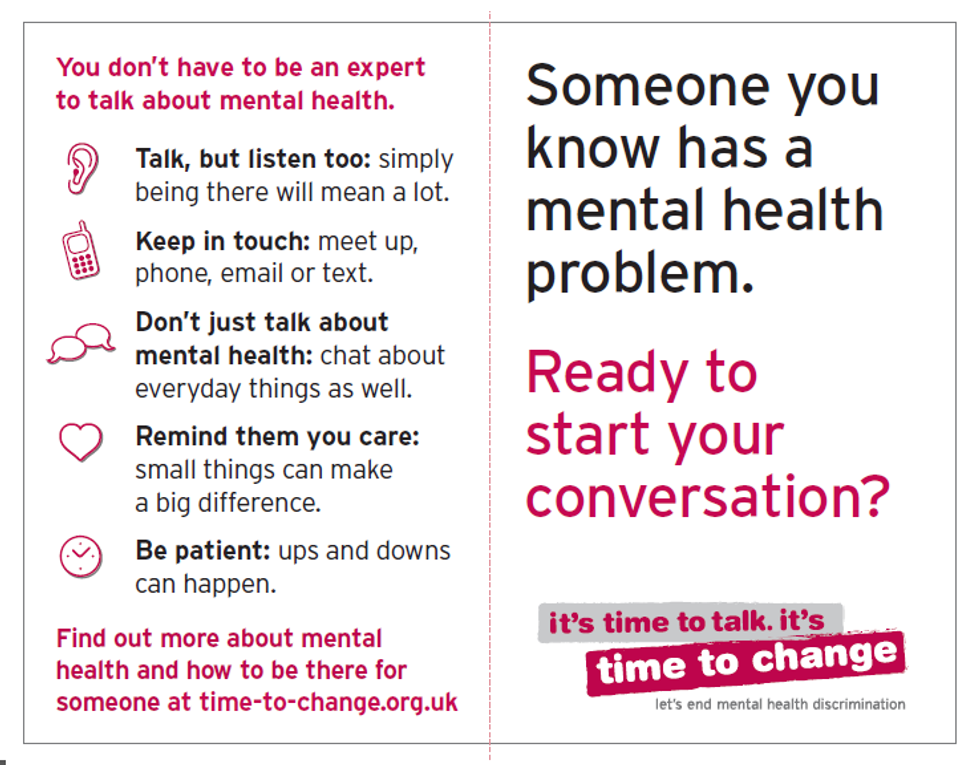Recently I read the book "Challenger Deep" by Neal Shusterman, which focuses on Caden Bosch, a teenage boy, as he struggles with living in two realities that ultimately merge into one. One where Caden is diagnosed with bipolar disorder. The main reason that this book stuck with me, besides being brilliantly written, was this quote:
People say a failed attempt is a cry for help... Still, if you’ve got to bring yourself within inches of your life just to cry for help, something’s wrong somewhere. Either you weren’t yelling loud enough to begin with, or the people around you are deaf, dumb, and blind. Which makes me think it isn’t just a cry for help—it’s more a cry to be taken seriously. A cry that says "I'm hurting so badly, the world must, for once, come to a grinding halt for me."
This quote raises the question of why is it so hard for mental illnesses to be taken seriously. And to even further the point; what can we do about it?
According to a study done by the CDC, about half of adult Americans will develop some type of mental illness, and of those adults, 35 to 50 percent will go untreated and in 90 percent of suicides, mental illness is the attributing cause. Think about that: a fourth of the U.S. population has a life-threatening illness, but will go untreated because people don’t care enough. But why is this? What are the reasons that cause people to not be diagnosed or to go without treatment?
The main reason, which probably isn’t that shocking, is money. Some people just can’t afford to buy medication or pay for treatments, meaning that they just have to live it. These people, who can’t afford treatment, are then used as examples. If you have this mental illness, this is what it will look like. And these examples, which are often the extremes, are then spread through the media and are accepted as the norm. So what happens if you don’t show these symptoms? You get ignored. Simple as that. Mental illness is usually portrayed on a spectrum: either it’s really bad and you need all the help you can get, or it isn’t that bad and you can deal.
But this is just the tip of the iceberg. Mental illnesses are often overlooked because sometimes, there are no outside signs of the illness. Therefore, people who struggle with say, depression or anxiety are ignored or told to get over it and their illnesses might just be labeled as something else. It’s hard to get treatment when people want to see symptoms of an illness that happens in your brain.
Another large contributor to mental illnesses being ignored is how over romanticized they are. This over romanticism is largely due to inaccurate media portrayal. An article from U.S. News explains that media portrays mentally ill people as violent, disheveled or childish and that this is a large contributor into why mental illnesses are ignored. Other causes are depictions on social media sites such as Facebook and Tumblr which promote mental illnesses or misconstrue them.
In order to bring more attention to mental illnesses, the first thing we have to do is actually acknowledge their existence. This is the first step in making them socially recognizable and accept that they happen. We also have to work hard on dismantling the over romanticism surrounding them. This can be done much the same way it was romanticized, through social media. By getting the word out on the true reality of living with a mental illness, we can fight the stigmas surrounding them. Poems, such as Megan Maughan’s "5 Reasons to Date a Girl with an Eating Disorder" are great examples of illuminating this harsh reality.
Other ways to help include being there for friends and family and taking them seriously when they tell you about their illness. Just being there can make a huge difference because it’s easy to feel alone when you have a mental illness. And remember, every person is different and must be treated that way; while one form of treatment might work for one person, it might not work for another.
Overall, mental illness can be a horrible experience, but with understanding, compassion and patience, it can be made a bit more bearable for those that suffer from one.

























